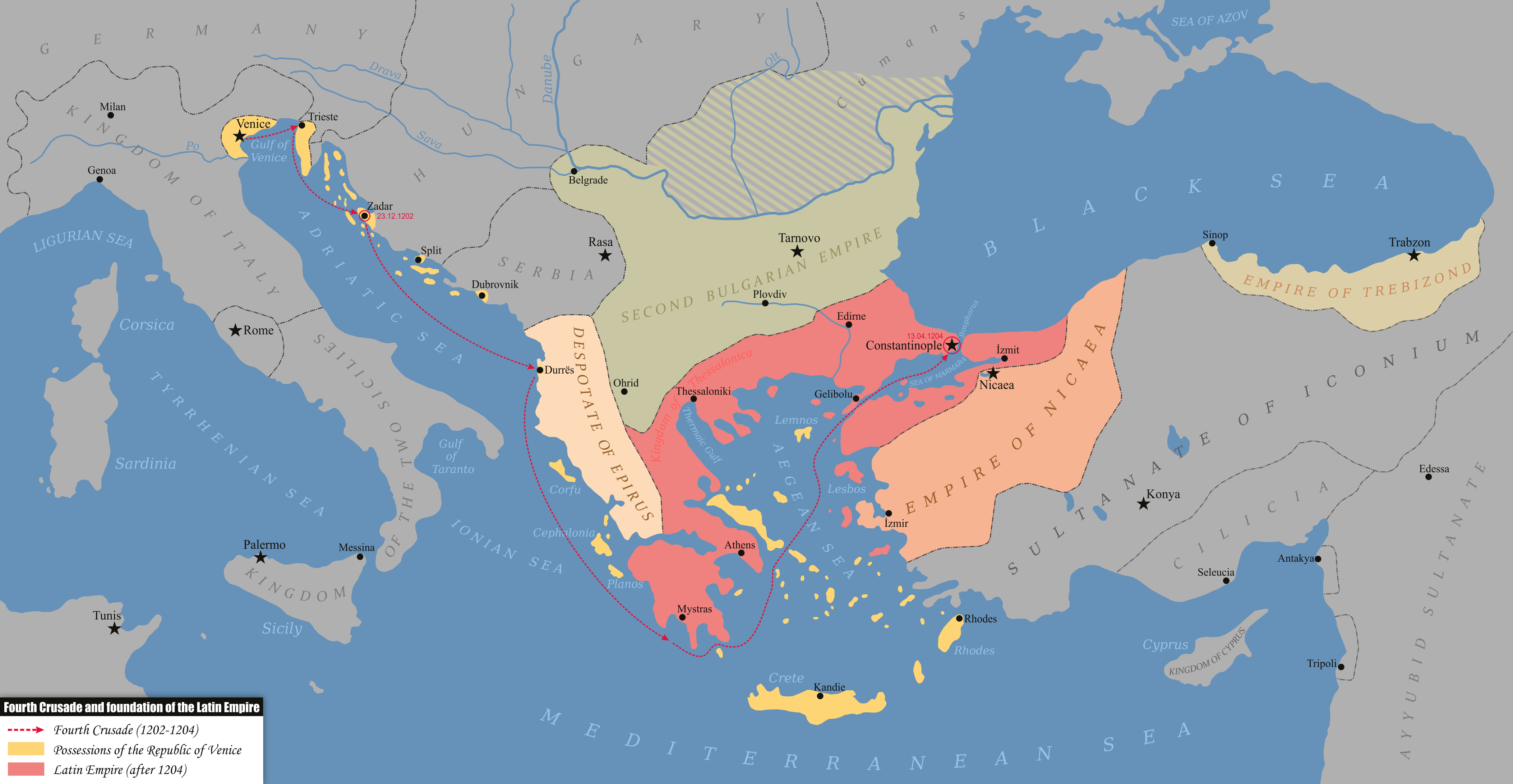|
Rusudan, Daughter Of Demetrius I Of Georgia
Rusudan ( ka, რუსუდანი) was a 12th-13th-century Georgian princess of the Bagrationi royal family. She was a daughter of King Demetrius I of Georgia, sister of the kings David V and George III, wife of Manuchihr II of Shirvan, and a paternal aunt of the famous Queen Tamar of Georgia. Around 1143Edge of Empires: A History of Georgia by Donald Rayfield, page 99 she married sultan Masud Temirek, but the marriage only lasted a few years before his death 2 October 1152. She later married Ahmed Sanjar, a Seljuk sultan. When her second husband died, she married Manuchihr II of Shirvan, returned to Georgia and ruled over it as a regent in the first years of Queen Tamar’s reign. She was also a tutor and patron of the Alan prince Soslan-David whom Tamar married as her second husband in 1189. Some historians believe that in 1154 Rusudan was also married to Iziaslav II of Kiev, [...More Info...] [...Related Items...] OR: [Wikipedia] [Google] [Baidu] |
Georgia (country)
Georgia (, ; ) is a transcontinental country at the intersection of Eastern Europe and Western Asia. It is part of the Caucasus region, bounded by the Black Sea to the west, by Russia to the north and northeast, by Turkey to the southwest, by Armenia to the south, and by Azerbaijan to the southeast. The country covers an area of , and has a population of 3.7 million people. Tbilisi is its capital as well as its largest city, home to roughly a third of the Georgian population. During the classical era, several independent kingdoms became established in what is now Georgia, such as Colchis and Iberia. In the early 4th century, ethnic Georgians officially adopted Christianity, which contributed to the spiritual and political unification of the early Georgian states. In the Middle Ages, the unified Kingdom of Georgia emerged and reached its Golden Age during the reign of King David IV and Queen Tamar in the 12th and early 13th centuries. Thereafter, the ... [...More Info...] [...Related Items...] OR: [Wikipedia] [Google] [Baidu] |
Bagrationi, Daughter Of Demetrius I Of Georgia
Bagrationi was a 12th–13th century Georgian princess of the royal Bagrationi dynasty. She was a daughter of King Demetrius I of Georgia, sister of the kings David V and George III and Princess Rusudan. She was a paternal aunt of the famous Queen Tamar of Georgia. She was a wife of Iziaslav II of Kiev Iziaslav II Mstislavich ( uk, Ізяслав Мстиславич, russian: Изяслав II Мстиславич; c. 1096Bagrationi dynasty of the Kingdom of Georgia [...More Info...] [...Related Items...] OR: [Wikipedia] [Google] [Baidu] |
Remarried Royal Consorts
Remarriage is a marriage that takes place after a previous marital union has ended, as through divorce or widowhood. Some individuals are more likely to remarry than others; the likelihood can differ based on previous relationship status (e.g. divorced vs. widowed), level of interest in establishing a new romantic relationship, gender, culture, and age among other factors. Those who choose not to remarry may prefer alternative arrangements like cohabitation or living apart together. Remarriage also provides mental and physical health benefits. However, although remarried individuals tend to have better health than individuals who do not repartner, they still generally have worse health than individuals who have remained continuously married. Remarriage is addressed differently in various religions and denominations of those religions. Someone who repeatedly remarries is referred to as a ''serial wedder''. Remarriage following divorce or separation As of 1995, depending on individu ... [...More Info...] [...Related Items...] OR: [Wikipedia] [Google] [Baidu] |
13th-century Deaths
The 13th century was the century which lasted from January 1, 1201 ( MCCI) through December 31, 1300 ( MCCC) in accordance with the Julian calendar. The Mongol Empire was founded by Genghis Khan, which stretched from Eastern Asia to Eastern Europe. The conquests of Hulagu Khan and other Mongol invasions changed the course of the Muslim world, most notably the Siege of Baghdad (1258), the destruction of the House of Wisdom and the weakening of the Mamluks and Rums which, according to historians, caused the decline of the Islamic Golden Age. Other Muslim powers such as the Mali Empire and Delhi Sultanate conquered large parts of West Africa and the Indian subcontinent, while Buddhism witnessed a decline through the conquest led by Bakhtiyar Khilji. The Southern Song dynasty would begin the century as a prosperous kingdom but would eventually be invaded and annexed into the Yuan dynasty of the Mongols. The Kamakura Shogunate of Japan would be invaded by the Mongols. Goryeo resist ... [...More Info...] [...Related Items...] OR: [Wikipedia] [Google] [Baidu] |
12th-century Births
1 (one, unit, unity) is a number representing a single or the only entity. 1 is also a numerical digit and represents a single unit of counting or measurement. For example, a line segment of ''unit length'' is a line segment of length 1. In conventions of sign where zero is considered neither positive nor negative, 1 is the first and smallest positive integer. It is also sometimes considered the first of the infinite sequence of natural numbers, followed by 2, although by other definitions 1 is the second natural number, following 0. The fundamental mathematical property of 1 is to be a multiplicative identity, meaning that any number multiplied by 1 equals the same number. Most if not all properties of 1 can be deduced from this. In advanced mathematics, a multiplicative identity is often denoted 1, even if it is not a number. 1 is by convention not considered a prime number; this was not universally accepted until the mid-20th century. Additionally, 1 is the ... [...More Info...] [...Related Items...] OR: [Wikipedia] [Google] [Baidu] |
Princesses From Georgia (country)
Princess is a regal rank and the feminine equivalent of prince (from Latin ''princeps'', meaning principal citizen). Most often, the term has been used for the consort of a prince, or for the daughter of a king or prince. Princess as a substantive title Some princesses are reigning monarchs of principalities. There have been fewer instances of reigning princesses than reigning princes, as most principalities excluded women from inheriting the throne. Examples of princesses regnant have included Constance of Antioch, princess regnant of Antioch in the 12th century. Since the President of France, an office for which women are eligible, is ''ex-officio'' a Co-Prince of Andorra, then Andorra could theoretically be jointly ruled by a princess. Princess as a courtesy title Descendants of monarchs For many centuries, the title "princess" was not regularly used for a monarch's daughter, who, in English, might simply be called "Lady". Old English had no female equivalent of "prince ... [...More Info...] [...Related Items...] OR: [Wikipedia] [Google] [Baidu] |
13th-century Women From Georgia (country)
The 13th century was the century which lasted from January 1, 1201 ( MCCI) through December 31, 1300 ( MCCC) in accordance with the Julian calendar. The Mongol Empire was founded by Genghis Khan, which stretched from Eastern Asia to Eastern Europe. The conquests of Hulagu Khan and other Mongol invasions changed the course of the Muslim world, most notably the Siege of Baghdad (1258), the destruction of the House of Wisdom and the weakening of the Mamluks and Rums which, according to historians, caused the decline of the Islamic Golden Age. Other Muslim powers such as the Mali Empire and Delhi Sultanate conquered large parts of West Africa and the Indian subcontinent, while Buddhism witnessed a decline through the conquest led by Bakhtiyar Khilji. The Southern Song dynasty would begin the century as a prosperous kingdom but would eventually be invaded and annexed into the Yuan dynasty of the Mongols. The Kamakura Shogunate of Japan would be invaded by the Mongols. Goryeo resiste ... [...More Info...] [...Related Items...] OR: [Wikipedia] [Google] [Baidu] |
12th-century Women From Georgia (country)
1 (one, unit, unity) is a number representing a single or the only entity. 1 is also a numerical digit and represents a single unit of counting or measurement. For example, a line segment of ''unit length'' is a line segment of length 1. In conventions of sign where zero is considered neither positive nor negative, 1 is the first and smallest positive integer. It is also sometimes considered the first of the infinite sequence of natural numbers, followed by 2, although by other definitions 1 is the second natural number, following 0. The fundamental mathematical property of 1 is to be a multiplicative identity, meaning that any number multiplied by 1 equals the same number. Most if not all properties of 1 can be deduced from this. In advanced mathematics, a multiplicative identity is often denoted 1, even if it is not a number. 1 is by convention not considered a prime number; this was not universally accepted until the mid-20th century. Additionally, 1 is the ... [...More Info...] [...Related Items...] OR: [Wikipedia] [Google] [Baidu] |
Empire Of Trebizond
The Empire of Trebizond, or Trapezuntine Empire, was a monarchy and one of three successor rump states of the Byzantine Empire, along with the Despotate of the Morea and the Principality of Theodoro, that flourished during the 13th through to the 15th century, consisting of the far northeastern corner of Anatolia (the Pontus) and the southern Crimea. The empire was formed in 1204 with the help of the Georgian queen Tamar after the Georgian expedition in Chaldia and Paphlagonia, commanded by Alexios Komnenos a few weeks before the sack of Constantinople. Alexios later declared himself Emperor and established himself in Trebizond (modern day Trabzon, Turkey). Alexios and David Komnenos, grandsons and last male descendants of deposed Emperor Andronikos I Komnenos, pressed their claims as "Roman emperors" against Byzantine Emperor Alexios V Doukas. The later Byzantine emperors, as well as Byzantine authors, such as George Pachymeres, Nicephorus Gregoras and to some ext ... [...More Info...] [...Related Items...] OR: [Wikipedia] [Google] [Baidu] |
Cyril Toumanoff
Cyril Leo Toumanoff (russian: Кирилл Львович Туманов; 13 October 1913 – 4 February 1997) was a Russian-born Georgian historian and genealogist who mostly specialized in the history and genealogies of medieval Georgia, Armenia, Iran and the Byzantine Empire. His works have significantly influenced the Western scholarship of the medieval Caucasus. Robert H. Hewsen. "In Memoriam: Cyril Toumanoff." ''Journal of the Society for Armenian Studies''. Vol. 8, 1995, 5–7. Family Cyril Toumanoff was born in Saint Petersburg into a family of the military officer of the Russian army. His father's ancestors came of the princely family of Tumanishvili (Tumanov) from Georgia,Rapp, Stephen H. (2003), ''Studies In Medieval Georgian Historiography: Early Texts And Eurasian Contexts'', p. 16. Peeters Bvba, .For the present investigation no single scholar's body of work has had a greater impact than that of Cyril Toumanoff (1913 -1997). Born in St. Peterburg of an old Armeno-Georg ... [...More Info...] [...Related Items...] OR: [Wikipedia] [Google] [Baidu] |
Shirvanshah
''Shirvanshah'' ( fa, شروانشاه), also spelled as ''Shīrwān Shāh'' or ''Sharwān Shāh'', was the title of the rulers of Shirvan from the mid-9th century to the early 16th century. The title remained in a single family, the Yazidids, an originally Arab but speedily Persianized dynasty, although the later ''Shirvanshahs'' are also known as the Kasranids or Kaqanids.Barthold, W., C.E. Bosworth "Shirwan Shah, Sharwan Shah. "Encyclopaedia of Islam. Edited by: P. Bearman, Th. Bianquis, C.E. Bosworth, E. van Donzel and W.P. Heinrichs. Brill, 2nd edition The Shirvanshah established a native state in Shirvan (located in modern Azerbaijan). The Shirvanshahs dynasty, existing as independent or a vassal state, from 861 until 1538; one of longest existing dynasties in the Islamic world, are known for their support of culture. There were two periods of an independent and strong Shirvan state: first in the 12th century, under kings Manuchehr and his son, Akhsitan I who built the ... [...More Info...] [...Related Items...] OR: [Wikipedia] [Google] [Baidu] |





